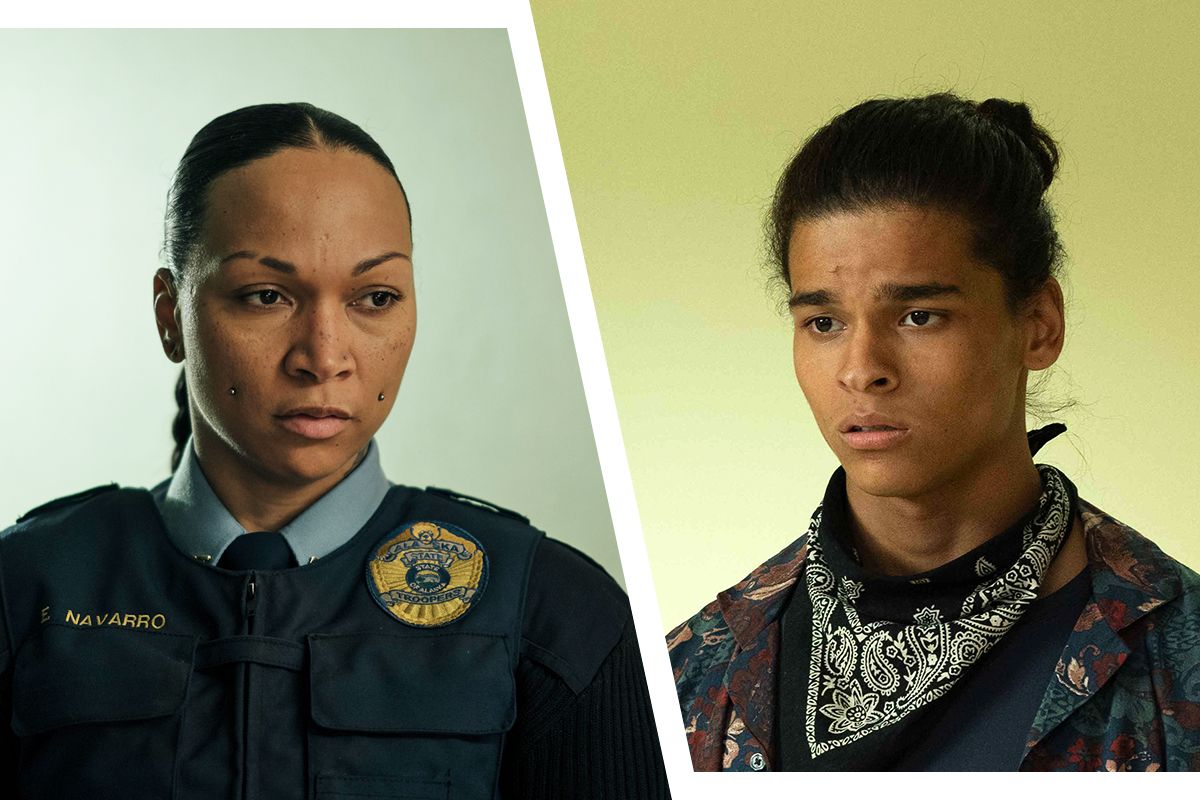Indigenous Creators and Actors Are Finally Getting Emmys Due
“It’s undeniable that Indigenous storytelling, filmmakers, and actors are here and can compete with anyone,” said Reservation Dogs’s Sterlin Harjo.

For most of TV history, the small-screen medium has hardly trafficked in representing a multitude of voices. Naturally, the same can be said about the Television Academy, the voting body that lords over TV’s biggest awards show. That might explain why 2024 is a historic year for Indigenous representation at the 76th Emmy Awards. In its third and final season, Reservation Dogs finally landed a nomination in a prime-time category after years of being all but snubbed, despite widespread critical acclaim and artistic storytelling. Earning a spot in the highly competitive Outstanding Comedy category, the FX half-hour show follows a group of Native teenagers in Oklahoma as they grow up, separate, and come back together. Will Reservation Dogs receiving an Emmy nomination have an impact on representation in the industry? Co-creator and showrunner Sterlin Harjo, who’s currently in the writers’ room for a new show, believes something’s shifted, even if the industry remains the same.
“Hollywood always continues business as usual, but it’s undeniable now,” he said over the phone after hearing about his nomination and the show’s recognition with four nominations overall, including Outstanding Lead Actor for star D’Pharaoh Woon-A-Tai. “With these nominations, it’s undeniable that Indigenous storytelling, filmmakers, and actors are here and can compete with anyone,” he said. “They have interesting perspectives and things that maybe the mainstream has never seen before.” The nod for Reservation Dogs appears to be the first time a show solely following Indigenous characters has been nominated in the Comedy, Drama, or Limited Series categories. Outside of the prime-time slots, HBO’s Bury My Heart at Wounded Knee won the Outstanding Made for Television Movie Emmy in 2007, with August Schellenberg, who comes from Mohawk background, nominated for Best Supporting Actor.
While it’s difficult to know exactly how many past Emmy nominees identified as Indigenous people, it’s clear that 2024 marks a banner year for Indigenous representation at the Emmys. Lily Gladstone and Kali Reis became the first Indigenous women nominated in the overall acting categories, both in the Best Supporting Actress category. Reis received a nod for her work on HBO’s True Detective: Night Country, where she plays a state trooper investigating the chilling disappearance of scientists at a nearby research station in Alaska. She thanked HBO, Issa López, and the “legendary” Jodie Foster in a statement before recognizing the present and future of Indigenous storytellers in the industry. “Being only my third acting role, I never would have thought I’d have the opportunity to kick down doors alongside such talented humans like Lily Gladstone and D’Pharaoh Woon-A-Tai,” Reis wrote. “As a proud Wampanoag–Cape Verdean two spirit woman of color, I am excited to see the progression of representation in this industry as we continue to tell our stories.”
Gladstone similarly earned recognition for her role as police officer Cam Bentland in Hulu’s Under the Bridge, tasked with investigating the murder of a 14-year-old girl. It’s the second time Gladstone shattered an awards-season glass ceiling. In 2023, she became the first Native American nominated for a Best Actress Academy Award for her performance in Martin Scorsese’s Killers of the Flower Moon.
Noticeably absent from the 2024 class of Emmy nominees is Devery Jacobs, the Indigenous Canadian actor who lit up Reservation Dogs both onscreen and off. While she was nominated for a Critics Choice Television Award for her role as Elora Danan, the Television Academy did not recognize her contributions to the show in the acting, directing, or writing categories. If she does get nominated in the future, it will be for a different show, as Reservation Dogs had its series finale last September. “We didn’t get nominated for the last few years, so it’s not surprising that they don’t get it all the way right,” Harjo said.
“Deer Lady,” a standout episode written by Harjo and helmed by Native director Danis Goulet, is up for Outstanding Cinematography, but was snubbed in the writing and directing categories. Time-shifting and shot like a New Hollywood horror film, the flashback episode deals with Native children being forcibly taken from their homes and sent to violent boarding schools. “It is carving a new path forward, not just about how we’re portrayed onscreen, but also how we actually endeavor to make things about our collective trauma and all of our humanity,” Goulet told Vulture when it aired last year. Harjo doesn’t have a theory as to why its gutsy storytelling swing exploring real-life horrors wasn’t fully recognized.
Harjo hopes the nominations the show did earn will get more eyes on it. That way, people might be able to take away a thing or two. “Native people are funny and thriving in our communities and have interests and lessons that I think can be learned by people of all backgrounds,” he said. “Because we all have human experience, people can relate to our perspective as Indigenous people, might be able to approach things differently, and be inspired by our point of view.”
Related
